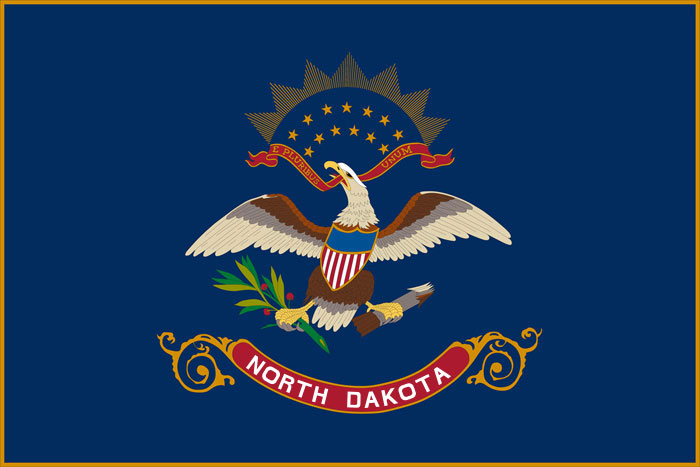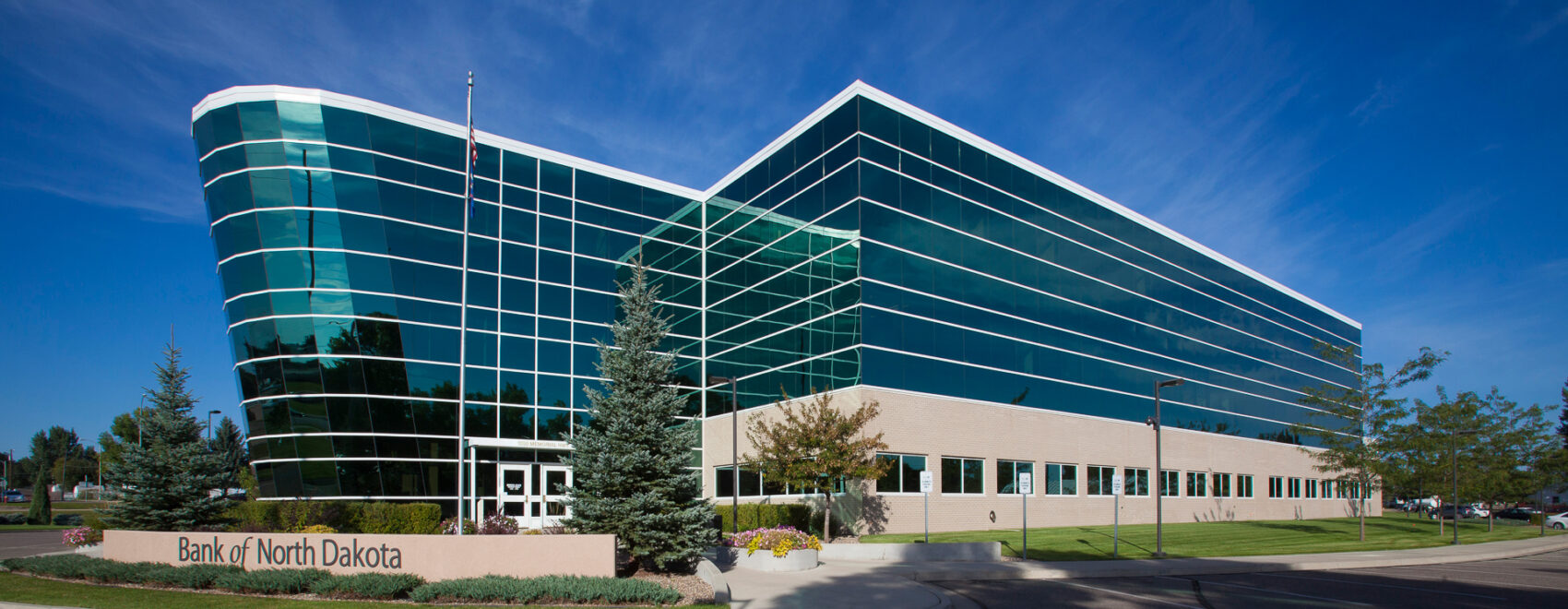An open letter to the residents of North Dakota:
On Tuesday, October 22, 2024, a national-based website called The Gateway Pundit published an article about the Bank of North Dakota (BND) filled with false allegations and misrepresented facts from anonymous sources. It is highly disappointing that The Gateway Pundit, which knows nothing about North Dakota or the 105-year history of BND, chose to publish such an inflammatory and baseless article, but also that local influencers, hosts and politicians are circulating the article with tacit support of these unfounded claims.
Most disappointing in the article is an indictment on the integrity of the staff of BND and local financial institutions from across the state who work every day to meet the mission of BND advancing agriculture, commerce and industry. The staff and our financial institution partners, who are also residents of the state, are above reproach; and such accusations are not only outrageous, but patently false.
Our hope was this article would disappear into the dust bin of conspiracy theories. As it has not, it is now time for the facts.
Bank of North Dakota’s Role in our State
BND was established in 1919 as a public-private partnership to support the development of private sector financial institutions and to promote agriculture, commerce, and industry in North Dakota. Its successes are unparalleled.
Today, North Dakota has per capita the most community banks of any state in the nation. This is because they can partner with BND and have access to capital they would not otherwise have. Residents from Beach to Fargo and Williston to Thompson can walk into a local financial institution to share their ideas for a new business, expand a current one, take over the family farm or buy their child’s first vehicle. A strong local banking economy means residents have access to a banker who has children in their same school and cheers on their town’s football team. Drive down the streets and see how many baseball fields, children’s soccer t-shirts and basketball courts are funded by a local bank or credit union.
As the state’s bank, BND fulfills on its mission by first managing risk on behalf of the state and then investing back into the state. Risk to the state’s collected revenues and funds includes ensuring the state can meet short-term liquidity needs in the event of unforeseen events or disasters, managing the risk of significant changes in interest rate environments like the current rate environment we are in, or credit and repayment risk associated with the state’s investments into agriculture, commerce, and industry.
With appropriate and balanced risk management, BND then invests the state’s funds into North Dakota farms, ranches, businesses and individuals via partnering with the state’s community banks and credit unions. Additionally, BND manages and invests in programs as directed by the Legislature, such as the School Construction Revolving Loan Fund, the Infrastructure Revolving Loan Fund, Clean and Sustainable Energy, and many more.
Bank of North Dakota’s Financial Condition
Contrary to The Gateway Pundit’s false accusations, BND is a solid financial institution with over $10.5 billion in assets and capital of $1.2 billion. BND has never written down $475 million in bad loans. Between 2015 and 2023, BND wrote down approximately $30 million in loans or about $3.3 million a year on average – less than 0.48% per year and directly in line with the low loss rates of the entire North Dakota banking industry. Like all the financial institutions in the state, BND has maintained strong performing loan and investment quality metrics for the last decade. In short, banks and credit unions across the state make good loans. North Dakotan’s repay their debts, and BND staff work tirelessly every day to ensure these good results continue.
Oversight of Bank of North Dakota
Contrary to the article’s allegations, there is significant oversight of BND’s operations. Every year, BND is audited by an outside accounting firm. These audit results are published in the Bank’s Annual Report and both are shared on the website.
At the founding of BND in 1919, the Nonpartisan League established the Industrial Commission comprised of the state’s Governor, Attorney General and Commissioner of Agriculture to oversee both BND and the State Mill and Elevator in Grand Forks. Additional oversight of BND is provided by an advisory board of seven North Dakota residents from across the state that meet with management monthly. Three of these representatives are North Dakota bankers and the balance have significant business experience.
BND is further examined every other year by the North Dakota Department of Financial Institutions. The most recent exam was completed in early 2024 with strong results. In addition, BND is credit rated nationally by Standard and Poor’s (S&P) and these results are reported on BND’s website. Its current rating by S&P is A+/Stable. In its most recent report, S&P stated:
“BND has one of the highest risk-adjusted capital (RAC) ratios for rated U.S. banks and we expect it to maintain very strong capital levels.” (S&P 11/06/2023 Report. Page 3)
“The stable outlook on BND is based on S&P Global Ratings’ view that over the next two years the bank will maintain very strong capital and appropriately manage its credit risk. We also expect that there will be no change in BND’s policy role or link to the state of North Dakota. In addition, we expect the bank to continue its prudent management of funding and liquidity as interest rates remain higher for longer.” (S&P 11/26/2023 Report. Page 4)
Oversight of BND is also provided by the North Dakota Legislature. BND meets with legislative leadership on a regular basis, and its operating and capital budget are approved during the biennial legislative sessions.
Cash Management Study
The Gateway Pundit twisted the facts of a recently completed study, commissioned by the Legislature and completed by RVK, which evaluated the cash management strategies for North Dakota. The Gateway Pundit alleges BND is providing substandard returns because of large loan losses and loans to political insiders, but that was not indicated within the cash management report.
To clarify, the RVK cash management study recommended the idea of moving all state deposits into a “duration stratified” investment account with significant equity investments made in out-of-state companies resulting in an improved overall return. However, the RVK study self-admittedly stops short of identifying the increased risk profile associated with this idea; and instead recommends the state pay significant fees for additional studies to further explore the original idea.
Today, BND is returning nearly 4%, or $400 million, on the $10 billion in managed assets with an appropriately balanced risk profile that provides for liquidity needs (both expected and unexpected), with strong positioning for further interest rate shocks, and with solid repayment sources managed through and with North Dakota banks and credit unions.
American Rescue Plan Act (ARPA) Funds
To set the record straight, BND was not bailed out with $1 billion in ARPA money, nor has it ever needed or required a “bailout.” ARPA funds were a deposit made into the Bank from the federal government to be used for COVID relief. At the time, every other state received similar funding. The Legislature then appropriated the funding to various programs and projects, and the funds are being appropriately spent on behalf of the residents of the state.
BND will Continue to Serve Residents
Something a national publication cannot understand is that BND’s mission to serve the state’s residents is just as, if not more important than, returns. Since its inception, BND has been called upon to serve the state in times of need, from paying teachers during the Dust Bowl years to providing disaster programs for Grand Forks, Fargo and Minot to assist recovery after devastating floods. More recently, BND has provided numerous disaster programs to the agricultural community including a herd rebuilder program after the drought of 2021. Currently, BND is evaluating the need for additional programs based on the wildfires and drought in the western part of the state.
Regardless of false allegations and misrepresented facts from anonymous sources, the management and staff of BND are continuing to do what we do best: serving the financial interests of our state, working with local financial institutions to build the state’s economy, and rolling up our sleeves to create financial solutions to the state’s economic challenges by working with elected officials, economic developers and nonprofit organizations to ensure North Dakota remains one of the best states in America.
In service to North Dakota,
Don Morgan, President/CEO Bank of North Dakota
Karl Bollingberg, Advisory Board Chair Bank of North Dakota
 An official website of the State of North Dakota
An official website of the State of North Dakota
